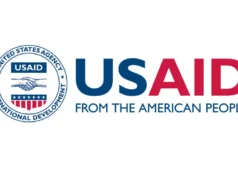Thinking about pursuing a master’s degree in Europe? You’re in luck! Not only is Europe home to some of the world’s best universities, but it’s also an affordable option for postgraduate education. With countries like Germany, France, and the Netherlands offering free or low-cost tuition for master’s degree students, it’s no wonder that more and more students from around the world are flocking to Europe for their graduate studies.
In this article, we’ll explore some of the cheapest universities in Europe for master’s degrees, and give you an overview of what to expect when it comes to the cost of living and other expenses.
Criteria For Master’s Degree Admission In Europe
Table of Contents
To pursue a Master’s degree in Europe, prospective students must navigate a set of admission requirements, which vary across universities but generally include:
- A Bachelor’s degree or equivalent: Applicants should possess a recognized undergraduate degree in a related field of study.
- Language proficiency: Non-native speakers may need to prove their proficiency in the language of instruction, typically English or the host country’s language, through standardized tests like TOEFL or IELTS.
- Application documents: A comprehensive package including a CV, personal statement, letters of recommendation, and sometimes a research proposal or portfolio, depending on the program.
- Entrance exams: Some programs may require specific entrance exams or assessments to evaluate the candidate’s suitability.
- Interview: A formal or informal interview might be part of the application process, especially for competitive programs.
1) University of Vienna
Nestled in the heart of Austria, the University of Vienna is a prime destination for students seeking affordable Master’s degree programs without sacrificing quality. This historic institution offers a wide variety of courses in both German and English, catering to a diverse international student body.
The tuition fee for non-EU/EEA students is attractively low at approximately €1,500 per semester. This fee structure positions the University of Vienna as a highly desirable option for those aiming to pursue higher education in Europe at a fraction of the cost associated with similar institutions.
- Estimated Tuition Fee: € 363.36 per semester.
2) University of Graz
The University of Graz in Austria stands out for its commitment to making higher education accessible and affordable. With a diverse range of Master’s programs, the university attracts students from across the globe, looking to benefit from a high-quality education without the financial burden often seen in other institutions.
For students from the EU/EEA, the appeal is even greater with the provision of tuition-free education. Those coming from outside the EU/EEA are required to pay a modest fee of approximately €1,500 per semester. Beyond its academic offerings, the University of Graz is celebrated for fostering a vibrant and welcoming community, ensuring a fulfilling campus experience for all its students.
- Estimated Tuition Fee: € 1500 per semester.
3) Stockholm University
Stockholm University in Sweden is a notable choice for students looking for cost-effective Master’s degree programs. The university is renowned for its research-driven courses, particularly in the sciences and humanities.
While Swedish universities typically offer free tuition for EU/EEA and Swiss students, non-EU/EEA students are subject to fees. At Stockholm University, these fees range from approximately €9,000 to €15,000 per academic year, depending on the program. Despite the fees for international students, the institution is an appealing option due to its high-quality education, strong global rankings, and the vibrant city of Stockholm itself, which offers a dynamic and multicultural environment for students.
- Estimated Tuition Fee: € 9000 per year
4) University of Bergen
At the University of Bergen in Norway, students can enjoy the rare opportunity of pursuing a Master’s degree without the burden of tuition fees, a policy that extends to all students, regardless of their home country. This exceptional approach makes higher education accessible to a broader demographic and places Bergen among the top choices for those looking to study in Europe economically.
While the cost of living in Norway might be on the higher side, the absence of tuition costs significantly reduces the overall financial requirements for education. As such, students are encouraged to focus on budgeting for their living expenses, facilitating a less financially stressful academic experience in one of the most picturesque countries in Europe.
- Estimated Tuition Fee: € 600 per year
5) University of Turku
Situated in the vibrant country of Finland, the University of Turku stands out for its commitment to fostering innovation through research and offering top-tier education. EU/EEA students benefit from the lack of tuition fees, making advanced education more accessible. For international students outside of this zone, the institution eases the financial burden with scholarships aimed at covering tuition costs, which begin at about €10,000 annually.
This approach, coupled with the university’s robust support services and a dynamic international community, positions the University of Turku as a leading choice for students from around the globe seeking an affordable yet high-quality Master’s degree in Europe.
- Estimated Tuition Fee: € 7000
FAQS
Which country is best for Masters with low fees?
Several European countries offer Master’s degrees with low fees compared to other regions. Here are a few good options:
- Germany: Public universities in Germany have very low tuition fees for international students, typically around €150 to €200 per semester (around $170 to $230 USD). Living costs can also be relatively affordable compared to other Western European countries.
- Norway: Public universities in Norway offer free tuition for most students, including international students. However, living expenses can be high in Norway.
- France: Public universities in France have low tuition fees for all students, including international students. There might be additional fees, but the overall cost can be attractive.
- Austria: Public universities in Austria offer free tuition for some Master’s programs to students from all nationalities. This can be a great option if you find a program that aligns with your interests.
- Eastern European Countries: Several countries in Eastern Europe, like Poland, Hungary, and the Czech Republic, have lower tuition fees compared to Western Europe. Living costs can also be more affordable.
Which European country is best for studying with low costs?
When considering affordability, you need to look beyond just tuition fees. The cost of living also plays a significant role. Here are some factors to consider:
- Tuition Fees: As mentioned earlier, countries like Germany, France, and Austria offer low tuition fees.
- Living Expenses: Look at factors like accommodation, food, transportation, and utilities. Eastern European countries and some smaller Western European nations might have lower living costs than major cities like London or Paris.
- Scholarships: Explore scholarship opportunities offered by the university or external organizations. This can significantly reduce your overall cost.
How much are European Master’s fees?
European Master’s fees can vary greatly depending on the country, university, and program type. Here’s a general range:
- Public Universities: Can range from free tuition (like Norway) to €2,000 to €5,000 per year (around $2,300 to $5,800 USD)
- Private Universities: Can be significantly higher, sometimes exceeding €20,000 per year ($23,000 USD) or more
Which European country has no tuition fees?
A few European countries offer Master’s programs with no tuition fees for international students:
- Norway: Public universities in Norway generally offer free tuition.
- Iceland: Public universities in Iceland might have nominal fees but are very affordable compared to other European countries.
- Finland: Public universities in Finland recently implemented tuition fees for non-EU/EEA students, but some universities might offer scholarships that cover these fees.
Which country is the easiest to get a student visa in Europe?
The ease of obtaining a student visa can vary depending on your nationality and the specific country. Here are some general observations:
- EU Countries: For students from EU/EEA countries, obtaining a visa for studies in another member state is usually straightforward.
- Countries with Established International Student Programs: Countries like Germany and the Netherlands have well-established student visa processes for international students.
- Your Nationality: Visa requirements and processing times can vary depending on your home country.
It’s always best to check the specific requirements and procedures for the country you’re interested in studying. The embassy or consulate of the country you plan to study in can provide the most up-to-date information.
Conclusion
In conclusion, if you’re looking for a high-quality and affordable master’s degree, Europe is a great option to consider. There are many excellent universities to choose from, with many offering tuition-free or low-cost education. And, the overall cost of living in Europe is generally much lower than in other parts of the world. So, if you’re looking for an affordable way to earn a master’s degree, Europe should be at the top of your list. It’s a fantastic way to gain a world-class education while enjoying a culturally rich and diverse experience.









